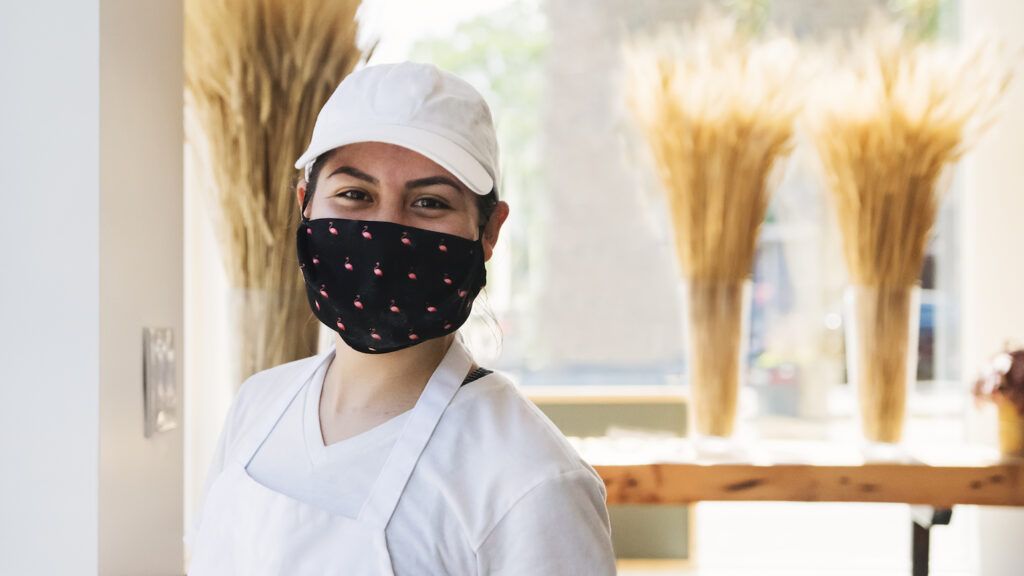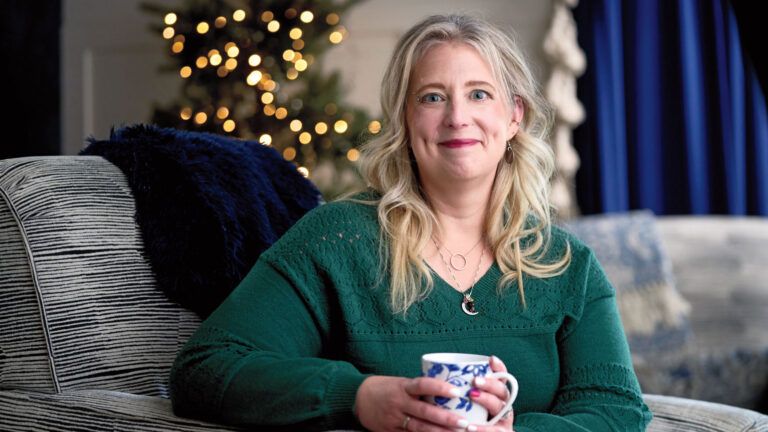Among the many losses inherent in living through the coronavirus pandemic is the ability to communicate non-verbally through a simple smile. My husband and I, in taking summer photos with our 9-year-old son, still can’t help but hear “say ‘cheese!’” coming out of our mouths, even though our smiles will be covered up by our masks.
Maybe we continue to say it because it feels good to express happiness in a way we’re used to, are unambiguous about, and have fond memories of.
But this is a new normal, and we need to show pleasure, connect with others and experience positive emotions in a physical way—even when wearing a mask and maintaining physical distance from others.
1) Smile with Your Eyes
You don’t need to change anything about your smiling habits to use this non-verbal cue—the outer corners of our eyes naturally crinkle and narrow when we smile, body language expert Janine Driver recently told the Today show. Anyone who has been around a baby knows they display this behavior even with pacifiers in their mouths, their pleasure unmistakable.
Another psychologist who studies facial expressions called a smile that involves the eyes “a true enjoyment smile.” Opening yourself up to feeling authentically positive will let your face tell the story, beyond the part that’s covered by your mask. If you can remove sunglasses while talking with someone outdoors, do that to communicate with your eyes.
2) Trust Your Voice
Our voices change when we smile, becoming brighter as the shape of our mouths change with happiness. Pay attention to this when you’re at home and unmasked. Next time you are on a phone call or chatting at the dinner table, listen for changes that come into your voice when you smile. Once you’ve noticed that, you can trust that others will hear it too, even when you’re wearing a mask.
3) Use Your Words
It’s helpful to get into the habit of being explicit about how you’re feeling, especially if you’re concerned that people can’t read your facial expression. Saying something like, “Oh, I love that!” or, “You’re making me laugh!” ensures that you are communicating your interest and pleasure in whatever is making you smile at the moment.
4) Use Your Hands
Those of us who spend time in virtual gatherings and meetings know that a simple nod or thumbs-up is an easy, unmistakable way to signal agreement and acknowledgement in a conversation. The same is true of masked interactions. Use your hands to do the same gestures you’d do on a video conference, adding a gesture like soft clapping to show that you’re smiling with your whole body.
5) Assume the Best in Others
Jeanne Tsai, a Stanford University psychologist, recently gave an interview in which she urged people to make positive assumptions about people who are wearing masks in public. “It might be safest to assume the best,” she said. “That under their masks, people are still friendly, trustworthy and deserving of help, particularly since they are trying to protect others as well as themselves from illnesses like COVID-19.”
I found this idea especially helpful. Starting from this positive premise, I now notice myself more able to relax and, under my own mask, genuinely smile.





